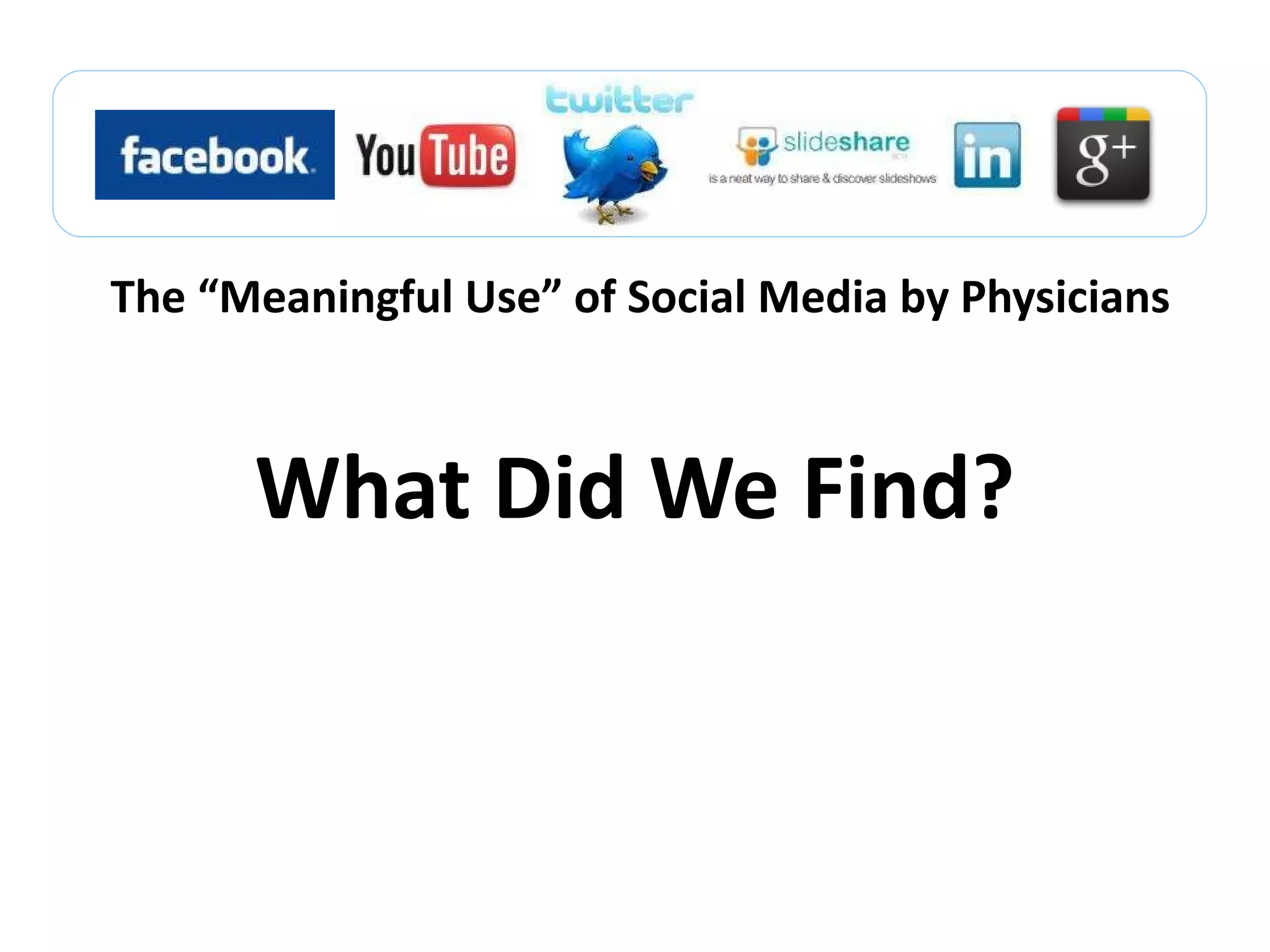1. The study aimed to examine physicians' adoption and use of social media to share medical information between oncologists and primary care physicians.
2. It found that email, podcasts, and restricted online communities were most commonly used, while awareness and use of applications like LinkedIn, Twitter and RSS feeds was lower.
3. Oncologists had higher rates of using more traditional applications and podcasts, while primary care physicians tended to use more social applications like Twitter.

















![The [education] system as it is structured today is so deeply flawed that it cannot properly support the development of health professionals…this has left health professionals unprepared to perform at the highest levels… http://jama.ama-assn.org/content/303/8/716.full](https://image.slidesharecdn.com/mcgowanbrianmeaningfuluse-111007224148-phpapp02/75/The-Meaningful-Use-of-Social-Media-by-Physicians-18-2048.jpg)





















![Methods/Framework Planning: Conducted a review of previously published literature Received input from advisory board of physicians with social media expertise Received approval from the Western Institutional Review Board [1] Utilized the Technology Acceptance Model [2] (TAM) theoretical framework as a model Survey distribution Survey distributed via email to a random sample of practicing oncologists and primary care physicians in the United States. Survey data was collected during March of 2011 from a total of 186 U.S. oncologists and 299 U.S. primary care physicians (response rate ~ 30%) [1] Administrative Letter-Waiver of Documentation of Consent: Physician Survey #8702685.0 Protocol(-2-04-2011) [2] Davis, F.D. (1989), “Perceived usefulness, perceived ease of use, and user acceptance of information technology”, MIS Quarterly 13(3): 319-340. Study conducted between November 2010 and March 2011](https://image.slidesharecdn.com/mcgowanbrianmeaningfuluse-111007224148-phpapp02/75/The-Meaningful-Use-of-Social-Media-by-Physicians-40-2048.jpg)























